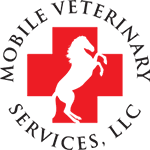***This blog was originally written in January of 2020, and as of today, March 24th, 2020, times have changed significantly. With Covid-19 causing the issues that it is, we feel it necessary to add the following statement.
Governor Polis on 3/20/2020, in Colorado Executive order 2020 009, made veterinarians part of the list of essential workforce to continue with “necessary procedures.” For the safety and welfare of horses, the Mobile Veterinary Services vaccination schedule will continue as planned. If delayed 3 or more months, depending on conditions, our horses will become susceptible to deadly diseases.
As always, at MVS, we strive for clear client communication. We will keep everyone informed to the best of our abilities as to the orders placed on us as veterinarians. Please feel free to call with individual questions that you may have. ***

There is a long list of vaccines available to give our horses. Owners and even veterinarians can get bogged down in the details, and that’s just based on the vaccines available.
Then we start to talk about schedules for each group of horses. Groups like Adult horses vaccinated in the past, Adult horses with no known or no history of vaccines, Foals (of vaccinated mares), Foals (of unvaccinated mares), oh yeah, and the broodmares! Whew, I think that covers the horse population!!!
Really quickly a discussion of “just vaccines,” gets complicated. Mobile Veterinary Services will always fall back on, “talk with your veterinarian to make a plan for YOUR herd and their individual needs.” Here, we would like to discuss “core vaccines.”
What is a core vaccine?
As defined by the AAEP (American Association of Equine Practitioners) a core vaccine “protects against diseases that are endemic to a region, are virulent/highly contagious, pose a risk of severe disease, those having potential public health significance, and/ or are required by law. Core vaccines have clearly demonstrable efficacy and safety, with a high enough level of patient benefit and low enough level of risk to justify their use in ALL equids.” It’s a mouthful, but what does it mean? In the end, it means that they are safe, low risk, and designed and developed to protect horses and humans alike.
These are the Core Vaccines recognized by the AAEP:
Tetanus: Should be given annually. If there is a question as to the status of a horse, they should receive a 2-dose series (4- 6 weeks apart). Colts should receive a 3 shot series beginning around 6 months of age, second dose 1 month later, and another dose at 1 year old.
EEE/WEE (Eastern Equine Encephalitis/ Western Equine Encephalitis): Just like the Tetanus, it should be given annually, and they should go through an initial 3 dose series. Conveniently, tetanus is often in a combination vaccine with these two.
West Nile Virus: As with the two above, West Nile should be given annually. This is often in combination with WEE/EEE and Tetanus and can be given to colts and fillies in one shot on the same 3 dose schedule.
Rabies: Rabies is 100% fatal, in ALL species. All youngsters should receive 2 vaccines starting around 6 months old (second one about 1 month later). Then, every horse, every year should receive a booster.
Every horse should receive at least these vaccines, every year.
It is important that these vaccines are handled correctly and managed at the appropriate temperature and environment to ensure that the vaccine is an effective and SAFE one. This is the biggest reason that we recommend that you receive your vaccines from a licensed veterinarian. If you ever have questions about your herd’s (no matter how big or small) vaccination protocol, please feel free to reach out to MVS!



